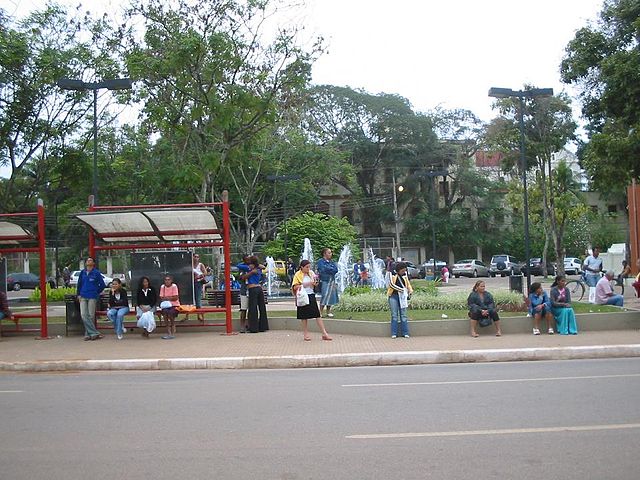João Donato de Oliveira Neto was a Brazilian jazz and bossa nova pianist as well as a trombonist from Rio Branco. He first worked with Altamiro Carrilho and went on to perform with Antonio Carlos Jobim and Astrud Gilberto. Because of the area he grew up in Brasil he was able to hear Cuban music on the radio. This influence would manifest itself in many of his compositions, piano, and trombone playing. Donato's most well-known compositions include: "Amazonas", "Lugar Comum", "Simples Carinho", "Até Quem Sabe" and "Nasci Para Bailar".
Donato in 2007
Rio Branco is a Brazilian municipality, capital of the state of Acre. Located in the valley of the Acre River in northern Brazil, it is the most populous municipality in the state, with 419,452 inhabitants, according to the 2021 census, almost half the state population. Rio Branco was one of the first settlements to develop in the region, being the westernmost major settlement in the country and the 4th-oldest state capital city in Northern Brazil, after Belém, Manaus and Macapá.
Clockwise from top left: O Casarão (The Old House), The Rio Branco Palace, Partial view of Rio Branco, Our Lady of Nazareth Cathedral and downtown Rio Branco
Rio Branco on a cool day of 16 °C or 60.8 °F
Rio Branco faces seasonal floodings at times, as the one pictured; March 2023, when over 15.000 people were displaced, due to a total of 585,9 mm of rain, in that month, only.
1st District of Rio Branco, a historically neglected region, which, over time, became the part of the city where the commerce concentrates the most. On the left, the south part of Rio Branco, a region linked to the ring road of the city (Via Verde) which has the presence of large enterprises such as; shopping malls, wholesale stores, government agencies, universities, soccer stadiums, convention centers, parks, etc. On the right, one can see the neighborhoods of Bosque, Estação Experimental, Jardim Europa, Abraão Alab, Cerâmica, Downtown Rio Branco among others.





